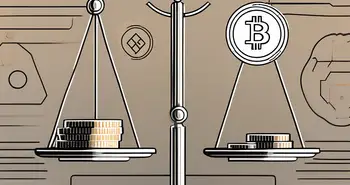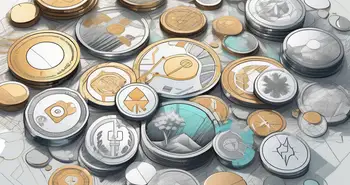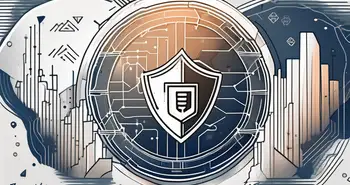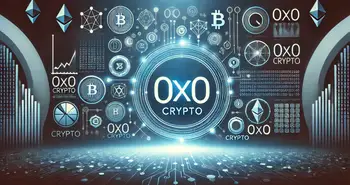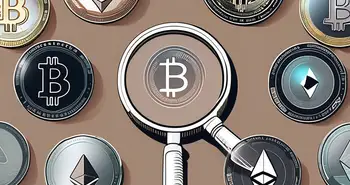Article Contents
The Insider’s Guide to Understanding Utility Tokens

Utility tokens have become a fundamental aspect of the cryptocurrency landscape, offering unique functionalities that extend beyond simple transactions. These tokens act as digital keys, granting access to specific products, services, or features within a blockchain ecosystem. Whether you’re a crypto enthusiast or a newcomer looking to understand the potential of blockchain technology, mastering the concept of utility tokens is essential.
In this ultimate guide, we’ll delve into the world of utility tokens, exploring their definition, how they work, and their distinct benefits. We’ll also examine real-world examples to highlight their practical applications and provide valuable tips on evaluating and investing in these tokens. By the end of this guide, you’ll have a comprehensive understanding of utility tokens and how they can be harnessed to unlock new opportunities in the digital economy.
What Are Utility Tokens?
Utility tokens are a type of cryptocurrency that grants holders access to a product or service within a blockchain-based ecosystem. Unlike traditional currencies, utility tokens are not intended for direct investment or payment purposes. Instead, they serve a specific function, such as granting access to platform features, enabling transactions within a decentralized application (dApp), or providing voting rights within a blockchain project.
How Do Utility Tokens Work?
Utility tokens operate within a predefined blockchain environment. Here’s a closer look at their functionality:
-
Access and Usage: Utility tokens allow users to access specific services or features within a platform. For example, a token might grant access to premium content, in-game items, or software functionalities.
-
Fueling Transactions: Within some blockchain ecosystems, utility tokens are used to pay for transaction fees or to execute smart contracts. This makes them essential for the operation of the platform.
-
Governance and Voting: In decentralized platforms, utility tokens can provide holders with voting rights, allowing them to influence decisions related to platform development and governance.
Benefits of Utility Tokens
Utility tokens offer several advantages that make them appealing to both users and developers:
-
Enhanced Engagement: By requiring tokens for access to features or services, platforms can increase user engagement and loyalty.
-
Decentralized Economy: Utility tokens enable the creation of decentralized economies within platforms, where users can trade goods and services directly.
-
Innovation and Development: Utility tokens can incentivize developers to create new features and services, driving innovation within the ecosystem.
Best Utility Tokens
Utility tokens play a crucial role in the cryptocurrency ecosystem by providing access to specific services or functions within a blockchain project. Here are some of the best utility tokens to consider:
1. Ethereum (ETH)
- Function: While Ether is widely known as a cryptocurrency, it also serves as a utility token within the Ethereum network. It is used to pay for transaction fees (known as “gas”) and computational services needed to run decentralized applications (dApps).
- Why It’s Great: Ethereum's vast and versatile ecosystem supports a wide range of dApps, making ETH indispensable for developers and users alike.
2. Binance Coin (BNB)
- Function: Initially created for use on the Binance exchange, BNB provides users with discounted trading fees, access to token sales on Binance Launchpad, and more.
- Why It’s Great: BNB's integration into the Binance Smart Chain (BSC) has expanded its use cases, allowing it to be used in DeFi applications, for staking, and as payment for transaction fees on BSC.
3. Chainlink (LINK)
- Function: LINK is used to pay for services within the Chainlink network, which connects smart contracts with real-world data.
- Why It’s Great: Chainlink’s decentralized oracle network is critical for bringing off-chain data to on-chain smart contracts, making LINK a vital utility token in the DeFi space.
4. Uniswap (UNI)
- Function: UNI is the governance token for the Uniswap decentralized exchange (DEX). Holders can vote on protocol upgrades, new initiatives, and changes to the fee structure.
- Why It’s Great: Uniswap is one of the most popular DEXs, and UNI provides holders with a say in its future development, making it a valuable utility token for the DeFi community.
5. Basic Attention Token (BAT)
- Function: BAT is used within the Brave browser ecosystem to reward users for viewing ads and to enable advertisers to purchase ad space.
- Why It’s Great: BAT's unique approach to digital advertising creates a win-win situation for users and advertisers, making it a standout utility token in the marketing sector.
6. Filecoin (FIL)
- Function: FIL is the native token of the Filecoin network, which is used to pay for storage space and retrieval services in the decentralized storage market.
- Why It’s Great: Filecoin’s decentralized storage solution is a critical infrastructure component for the Web3 ecosystem, providing secure and efficient data storage options.
7. Aave (AAVE)
- Function: AAVE is the governance token for the Aave protocol, a decentralized lending and borrowing platform. It also offers fee discounts and staking opportunities.
- Why It’s Great: Aave is a leading player in the DeFi space, and its token provides both governance rights and financial incentives, enhancing its utility.
By understanding and leveraging these utility tokens, you can tap into the diverse functionalities and benefits they offer within their respective ecosystems.
Evaluating and Investing in Utility Tokens
Investing in utility tokens requires careful consideration and due diligence. Here are some tips to help you evaluate potential opportunities:
-
Understand the Use Case: Ensure that the utility token has a clear and valuable use case within its ecosystem. Tokens without a strong purpose are less likely to succeed.
-
Research the Team: Investigate the team behind the project. Experienced and reputable developers are more likely to deliver on their promises.
-
Analyze Market Demand: Consider the demand for the token’s utility. A token that serves a critical function within a popular platform is more likely to appreciate in value.
Conclusion
Utility tokens are a dynamic and essential component of the blockchain world, offering unique functionalities that drive engagement and innovation. By understanding how these tokens work and how to evaluate them, you can unlock new opportunities within the digital economy. Whether you’re looking to use, trade, or invest in utility tokens, this guide provides the foundation you need to navigate this exciting space confidently.
FAQ
What are utility tokens?
Utility tokens are digital tokens that provide access and usage privileges within a blockchain network. They serve as the native currency on the platform and enable users to engage in transactions, access special features, or participate in governance mechanisms.
Are utility tokens the same as security tokens?
No, utility tokens and security tokens are distinct categories. Utility tokens represent access rights or usage privileges within a decentralized ecosystem, while security tokens are subject to securities regulations and represent ownership in an underlying asset.
What should I consider when investing in utility tokens?
When investing in utility tokens, it is crucial to evaluate the underlying technology, the project team's expertise, the token's use case and market demand, and the project's roadmap and potential partnerships. Additionally, investors should be aware of the risks associated with token investments and diversify their portfolio to mitigate risks.
What does the future hold for utility tokens?
The future of utility tokens looks promising, with emerging trends indicating increased integration into various industries and expanding use cases. As regulatory frameworks mature and technology advances, utility tokens are expected to become more widely adopted, driving innovation and transforming traditional systems.
In conclusion, utility tokens are an integral part of the blockchain revolution. They provide access and usage privileges within decentralized networks, and their role in driving innovation, streamlining processes, and reshaping industries cannot be underestimated. By understanding the basics, legal considerations, and investment opportunities associated with utility tokens, individuals and businesses can navigate this dynamic landscape and harness the full potential of blockchain technology.
Ready to take your understanding of utility tokens to the next level and experience the transformative power of blockchain in trading? Look no further than Morpher, the revolutionary trading platform that embodies the innovation of utility tokens. With Morpher, you can trade across a multitude of asset classes, enjoy zero fees, infinite liquidity, and the safety of a non-custodial wallet. Whether you're interested in fractional investing, short selling without interest fees, or leveraging up to 10x on your trades, Morpher offers a unique trading experience tailored to the modern investor. Embrace the future of trading with Morpher's Virtual Futures and a user-centric platform that stands out from traditional brokerages. Sign Up and Get Your Free Sign Up Bonus today to start trading the Morpher way!

Disclaimer: All investments involve risk, and the past performance of a security, industry, sector, market, financial product, trading strategy, or individual’s trading does not guarantee future results or returns. Investors are fully responsible for any investment decisions they make. Such decisions should be based solely on an evaluation of their financial circumstances, investment objectives, risk tolerance, and liquidity needs. This post does not constitute investment advice.

Painless trading for everyone
Hundreds of markets all in one place - Apple, Bitcoin, Gold, Watches, NFTs, Sneakers and so much more.

Painless trading for everyone
Hundreds of markets all in one place - Apple, Bitcoin, Gold, Watches, NFTs, Sneakers and so much more.



